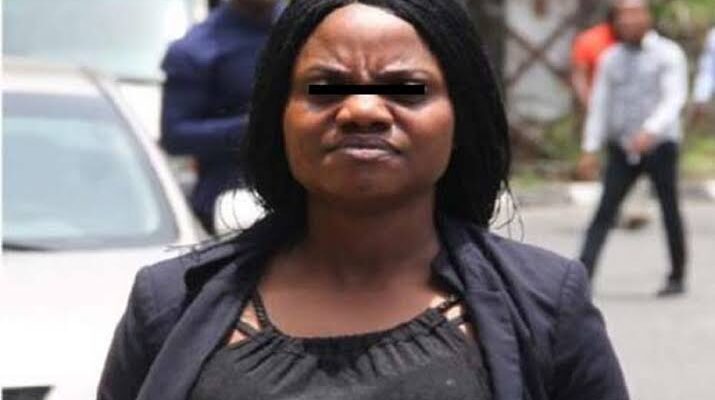
An Ikeja High Court has dismissed the “no-case” submission of a lawyer Taiwo Oreagba charged with alleged corrupt demand and obtaining N4million from one Henry Umoh under false pretence.
Justice Oluwatoyin Taiwo held that the evidence before the court raised several questions that needed clarifications from Oregba, hence the no-case submission failed.
Oreagba was arraigned for the alleged offence by the Economic and Financial Crimes Commission (EFCC) on Thursday, November 12, 2020, before Justice Sherifat Solebo of the Special Offences Court sitting in Ikeja, Lagos.
She pleaded not guilty to a two-count charge bordering on alleged corrupt demand and obtaining the N4m by false pretence.
The defendant, who is counsel to one Kelechi Uka currently under investigation by the Commission, was alleged to have collected the N4m from one Henry Umoh supposedly to influence officers of the Commission to secure Uka’s release.
Uka is standing trial on offences relating to stealing at the Lagos State High Court.
Count one of the charge reads in part: “That you, Taiwo Oreagba, on or about the 2nd of March, 2020 in Lagos, within the jurisdiction of this Honourable Court , whilst acting as counsel to one one Henry George Umoh”.
Following the defendant’s plea, she was granted bail and trial commenced.
But, during trial, Justice Solebo recused herself from hearing the case and it was sent back to the Chief Judge for reassignment.
The case was then assigned to Justice Taiwo.
At the resumed hearing before the new judge, EFCC counsel Emeka Akaogu called five witnesses who alleged that the defendant took advantage of her position as a lawyer to make corrupt demand from Umoh that she was capable of influencing EFCC officials to give a soft landing to Uka or no charge against Uka if he was able to raise the sum if N4million.
One of the exhibits provided by the prosecution and which was played several times in court, was an audio recording wherein a voice said the money was meant for EFCC officials.
Umoh who testified as Prosecution Witness (PW) 2 testified that the money the defendant allegedly demanded from him was not her professional fees, but money she purported would be given and was given to EFCC officers.
At the close of prosecutions case, the defence led by learned silk, Mahmood Adesina (SAN) entered a “no-case” submission, arguing that the money was Oreagba’s professional fees.
He argued, among others, that the PW2 stated under cross-examination that he did not give a bribe to any EFCC officers.
He contended that this fundamentally contradicted the other witnesses who testified that the money was meant to influence officers of the Commission.
But the prosecution opposed him, arguing that the charge before the court was not a charge for bribery, but was brought under Section 10 of the ICPC Act, 2000, for corrupt demand by persons and under Section 1(3) of the Advance Fee Fraud and other Related Offences Act, 2006.
The EFCC contended further that the defendant had earlier stated at some point in her extra-judicial statement that the said N4m was for restitution.
The agency stated further that in the audio recording, she was heard categorically stating the money was meant for EFCC officers.
*In her ruling on….* the court noted that it had listened to the evidence of the five prosecutions witnesses as well the exhibits, adding that it had heard the audio conversation where the defendant referred to the money as being meant for EFCC officers.
The court also observed that it had seen the extra-judicial statement of the defendant where she referred to the N4m to be meant for restitution and then in the defendant’s address where the money was said to be her professional fees.
“These are questions that need answers from the defendant hence the no case submission fails,” the judge held.
The case was adjourned till March 10 and 11, 2022 for the defence to open its case.

Comments